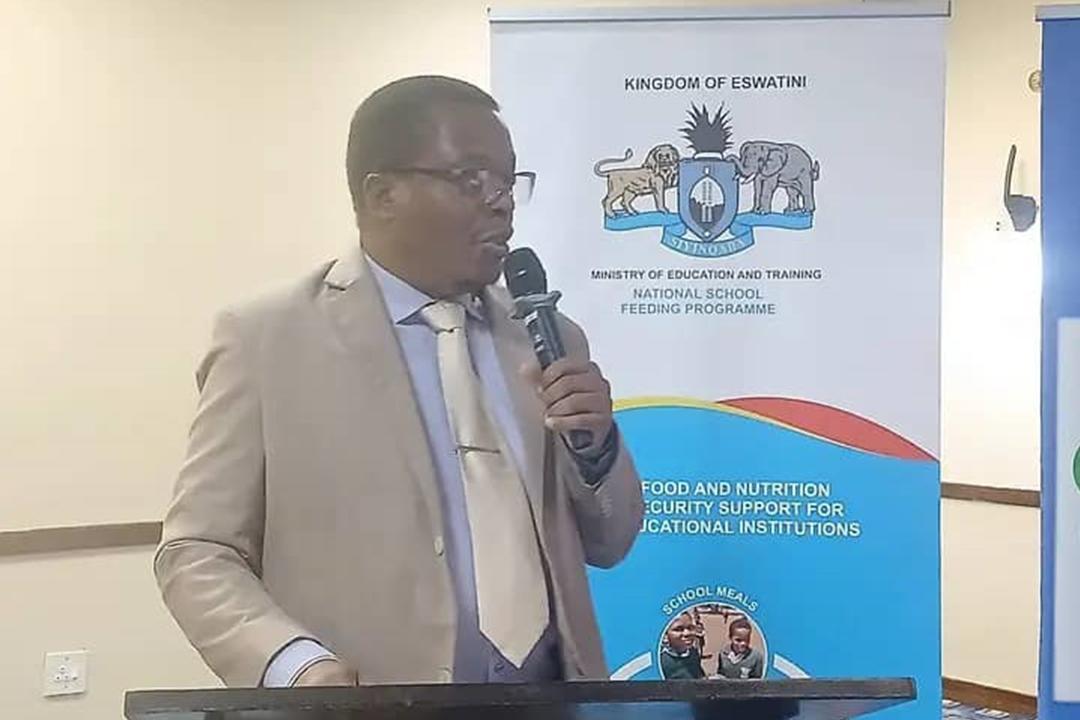Africa-Press – Eswatini. The Ministry of Education and Training (MOET), in partnership with the World Food Programme (WFP), is rolling up its sleeves to strengthen Eswatini’s national school feeding programme, with the goal of ensuring no learner is left behind due to hunger.
This was the focus on Day 2 of the Systems Approach for Better Education Results in School Feeding (SABER-SF) workshop held at The George Hotel in Manzini.
Stakeholders from across the education, agriculture, and development sectors gathered to address both achievements and gaps within the programme, and the conversation was both candid and urgent.
Under Secretary in the Ministry, Lungelo Nhlengetfwa, who stood in for Principal Secretary Nanikie Mnisi, did not mince words: “Schools need to professionalize school feeding. We cannot continue hiring cooks without the right skills.
The feeding programme is a critical part of education, and it must be run professionally.”
He also noted that some schools, especially high schools, have access to funding for building proper feeding infrastructure but are not using it. “Let’s utilise the resources we have,” he urged.
From policy and monitoring to logistics and infrastructure, each discussion circle presented findings that painted a mixed picture. WFP’s Bhekinkosi Kunene described the exercise as a “shared commitment to evidence-based planning and long-term sustainability.”
He explained that Eswatini’s school feeding programme is now being assessed across five pillars: policy, institutional capacity, financing, programme design, and community involvement.
What’s working? According to WFP and partner feedback, Eswatini scores high in food monitoring and safe storage. Budgeting systems are in place, and there is significant community support in the form of firewood, cash, and parental involvement.
What needs work? Delayed and unreliable food deliveries, lack of utensils, inadequate infrastructure, cooks without job descriptions or training, and minimal involvement of other stakeholders outside MOET.
“Feeding is coordinated solely by the Ministry,” one group reported, “but it’s time we brought in other players to share the responsibility.”
Participants agreed that a national dashboard is urgently needed to monitor school feeding progress. Also flagged was the need for a dedicated budget for non-food items, including transport and equipment as well as better audits and infrastructure upgrades.
In her official remarks, PS Mnisi, through her written address, reaffirmed the Ministry’s commitment “to an equitable and resilient education system in which no child’s potential is limited by hunger.”
She applauded the groundwork, including stakeholder interviews and reviews, that paved the way for the workshop.
The SABER tool, said WFP, will now help Eswatini map the way forward. “We’re proud to support the first SABER-SF for Eswatini,” said Kunene.
“The insights generated here will guide us toward a more inclusive, nationally owned feeding programme.”
As the final presentations wrapped up, one thing was clear: school feeding in Eswatini is not just about food, it’s about future-proofing education.
For More News And Analysis About Eswatini Follow Africa-Press







